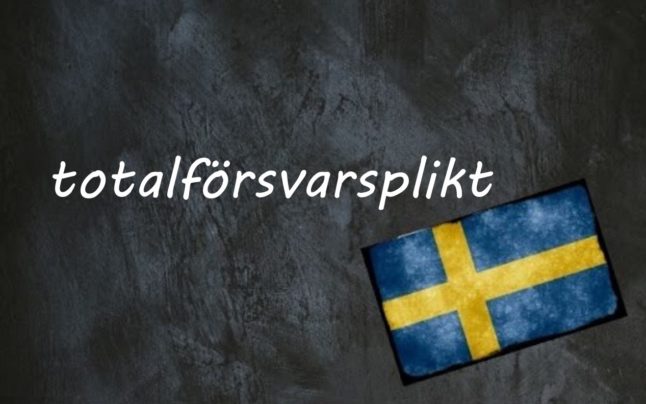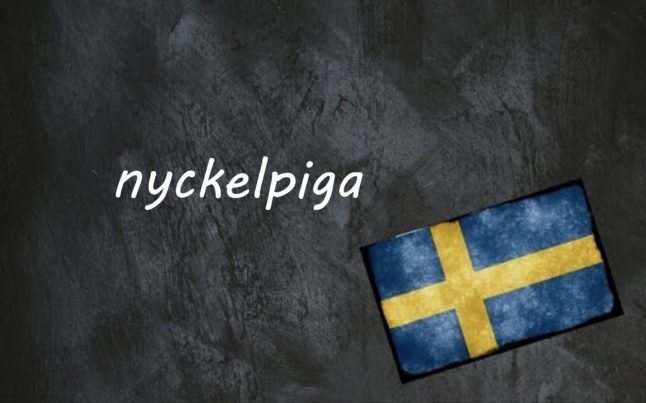Sweden, like several other countries, has a “total defence” strategy. This means that it is not only members of the Swedish Armed Forces who are responsible for defending the country in the event of an invasion, but every individual adult and every institution in society.
The duty to defend Sweden is known as totalförsvarsplikt and applies to everyone who lives in Sweden, regardless of whether or not they are a citizen. It includes both military and civil defence, although non-citizens would help with the latter rather than the former.
All government agencies, municipalities, voluntary organisations, regional councils, businesses, unions and religious organisations are required to prepare for their role in defending Sweden.
- Don’t miss any of our Swedish words and expressions of the day by downloading The Local’s new app (available on Apple and Android) and then selecting the Swedish Word of the Day in your Notification options via the User button
The idea is that a strong, pre-prepared resistance movement will act as a deterrent. An invader might be able to conquer the country, but maintaining an occupation will be difficult and costly.
Sweden decided to begin rebuilding its system of Total Defence in 2015, following Russia’s annexation of Crimea, and it has increasingly become a talking point in the years since.
You can read more about the Total Defence strategy here, but as this is a Swedish Word of the Day article, let’s break down the word itself and look at what the vocabulary actually means.
Totalförsvarsplikt can be broken down into three parts: total (“total”), försvar (“defence”) and plikt (“duty”). Swedes like their compound words.
Försvar means defence, and can be used both in a military sense (the Armed Forces are called Försvarsmakten in Swedish) and in the sense of defending yourself against an accusation.
The word plikt means duty and is, according to the Swedish Academy’s dictionary, related to the Proto-West Germanic *plihti (also meaning care, responsibility or duty). English speakers may wonder if it’s related to the word plight, and it is, but the meanings have diverged over time.
Whereas plight in English usually refers to being in a vulnerable state (and would in Swedish likely be translated as for example belägenhet, utsatt tillstånd or svår situation), in Swedish plikt refers to a moral or legal responsibility, just as duty. Similarly to duty, plikt could also refer to a fee that’s to be paid (usually as a fine), but this meaning of the word has fallen out of use in Sweden.
Plikten framför allt (“duty above all”) was the former King Gustaf VI Adolf’s motto and is also the name of an 1984 record by Swedish punk rockers Asta Kask. The current King Carl XVI Gustaf’s motto, if you’re interested, is för Sverige – i tiden (“for Sweden – with the times”).
Example sentences:
Totalförsvaret är en angelägenhet för hela befolkningen
Total defence is a matter for the entire population (the first paragraph in Sweden’s law on the total defence duty)
Man är totalförsvarspliktig från det år man fyller 16 till slutet av det år man fyller 70
You’re duty-bound to take part in Sweden’s total defence from the year you turn 16 until the end of the year you turn 70
Villa, Volvo, Vovve: The Local’s Word Guide to Swedish Life, written by The Local’s journalists, is available to order. Head to lysforlag.com/vvv to read more about it. It is also possible to buy your copy from Amazon US, Amazon UK, Bokus or Adlibris.



 Please whitelist us to continue reading.
Please whitelist us to continue reading.
Member comments